In the south-western region of India, is the state Karnataka and its capital city Bangalore. The region was once home to some of India’s most powerful ancient empires, with a history (dating back to the paleolithic) as wide and diverse as its 61-million inhabitants. It’s a beautiful region, with forests so dense many are yet to be explored, their flora and fauna still undiscovered.
The fauna of the region that is well documented however is its tiger and elephant populations, the latter of which is in conflict with the region’s many coffee plantations.
Despite all of the beauty of its forests, the climate is extremely hot and very humid – not the kindest of environments for film gear and equipment – as videographer and photographer Duane Regehr soon found out when recently shooting a documentary in the region for non-profit Clic Aboard.
Regehr, a two-time Emmy Award-winning television news photographer, worked with producer Dr. Tom Grant (of Abraham Baldwin Agricultural College) to document the conflict between the state’s native elephant populations with workers from local coffee plantations.
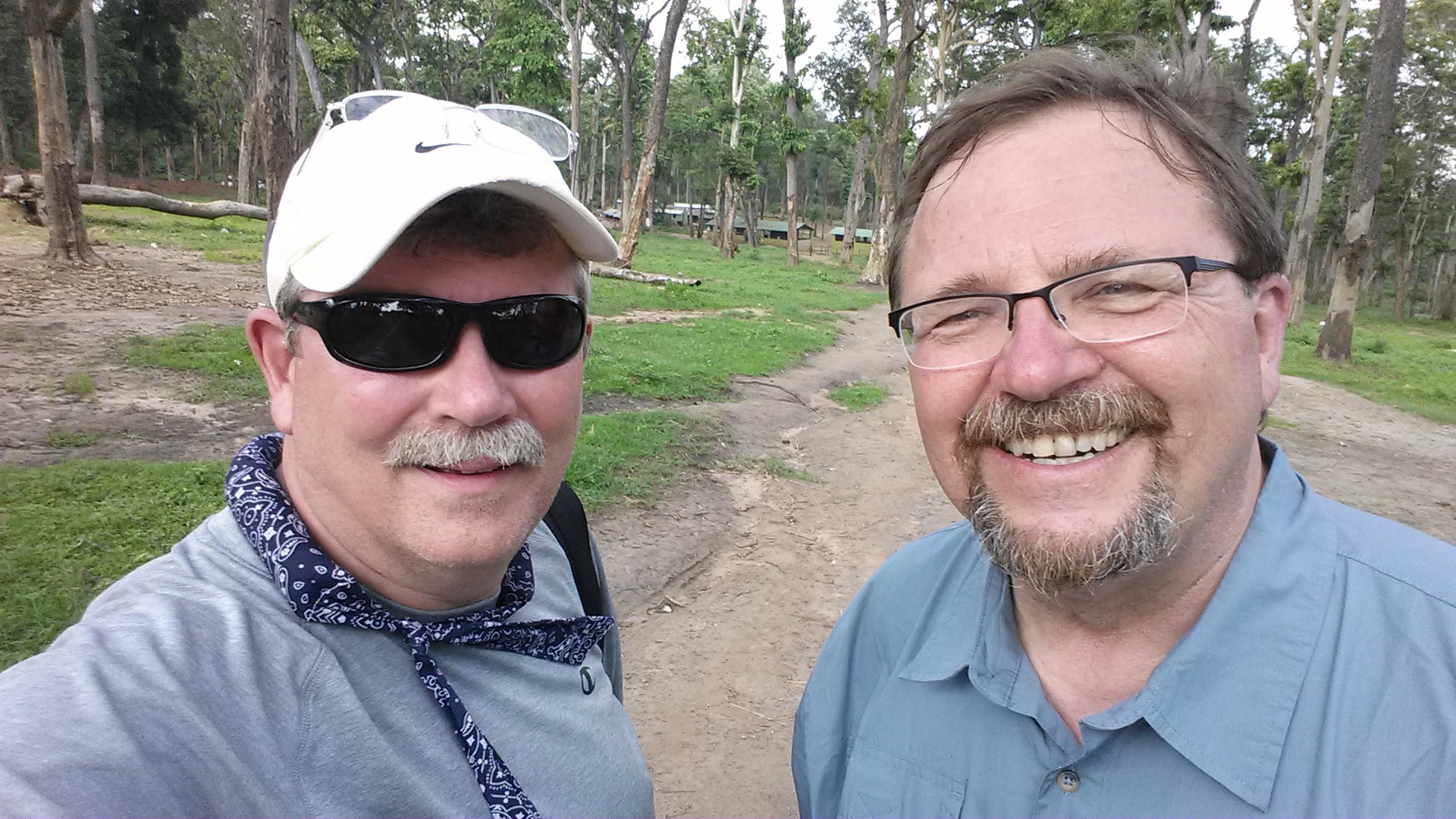
Duane Regehr and Dr. Thomas Grant (image: supplied).
Knowing much of the elephant doco would be shot in remote locations, often racing from one area to another in quick succession, Regehr needed his camera & sound kit to be portable enough to carry to location on-foot and nimble enough to set-up quickly.
“We were shooting in cities, in small villages, out in the jungle, on coffee plantations, and in elephant camps,” Regehr recounts.
“We needed to be light, fast, and mobile, to go where the elephants were. We might be planning to go in one direction and then get a phone call that there were elephants in a plantation two miles the other way, so we’d run over there.
Regehr knew that shooting on DSLRs would provide the kind of portability he needed, but for capturing sound he said: “I needed something that would provide solid audio capture in the field… To carry the audio load, especially for interviews.”
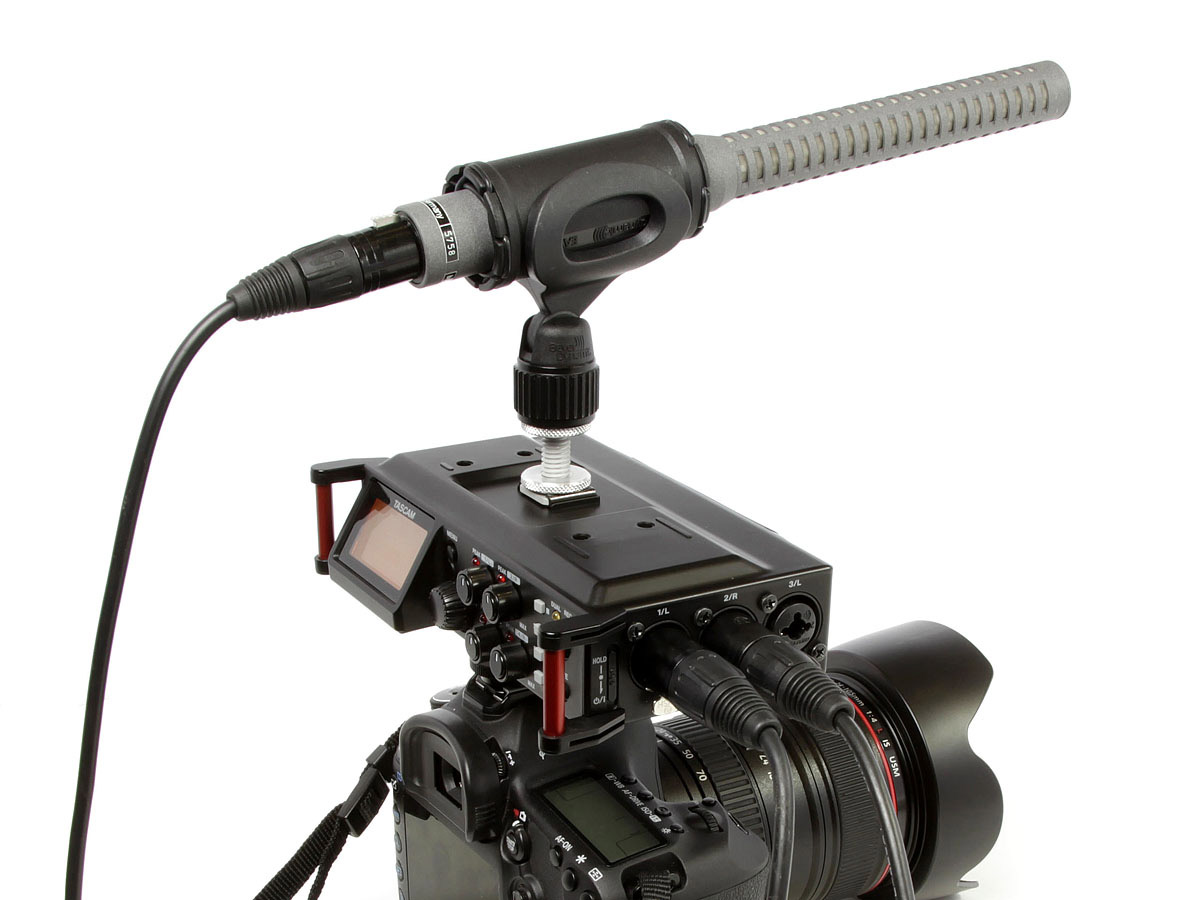
“Tom had used the Tascam DR-70D and was happy with it, so I went to the NAB show and checked it out. It had the right features, it was the right size and weight, and Tascam has a reputation for quality sound, so I bought one.
“I got a light tripod, mounted the DR-70D on it, put my Nikon 810 camera on top of that, and I had the mobile rig we needed.”
Keeping it simple, Regehr used the sound recorder’s internal mics to capture ambience, along with a couple of external microphones for interviews, saying: “I had a stick mic for the interviewer and a lavaliere for whoever we were interviewing. So we had two and sometimes four channels of audio.
“We preferred to shoot multiple-camera interviews, with a tight shot and a medium shot, and we used a phone app for a slate to link everything up.”
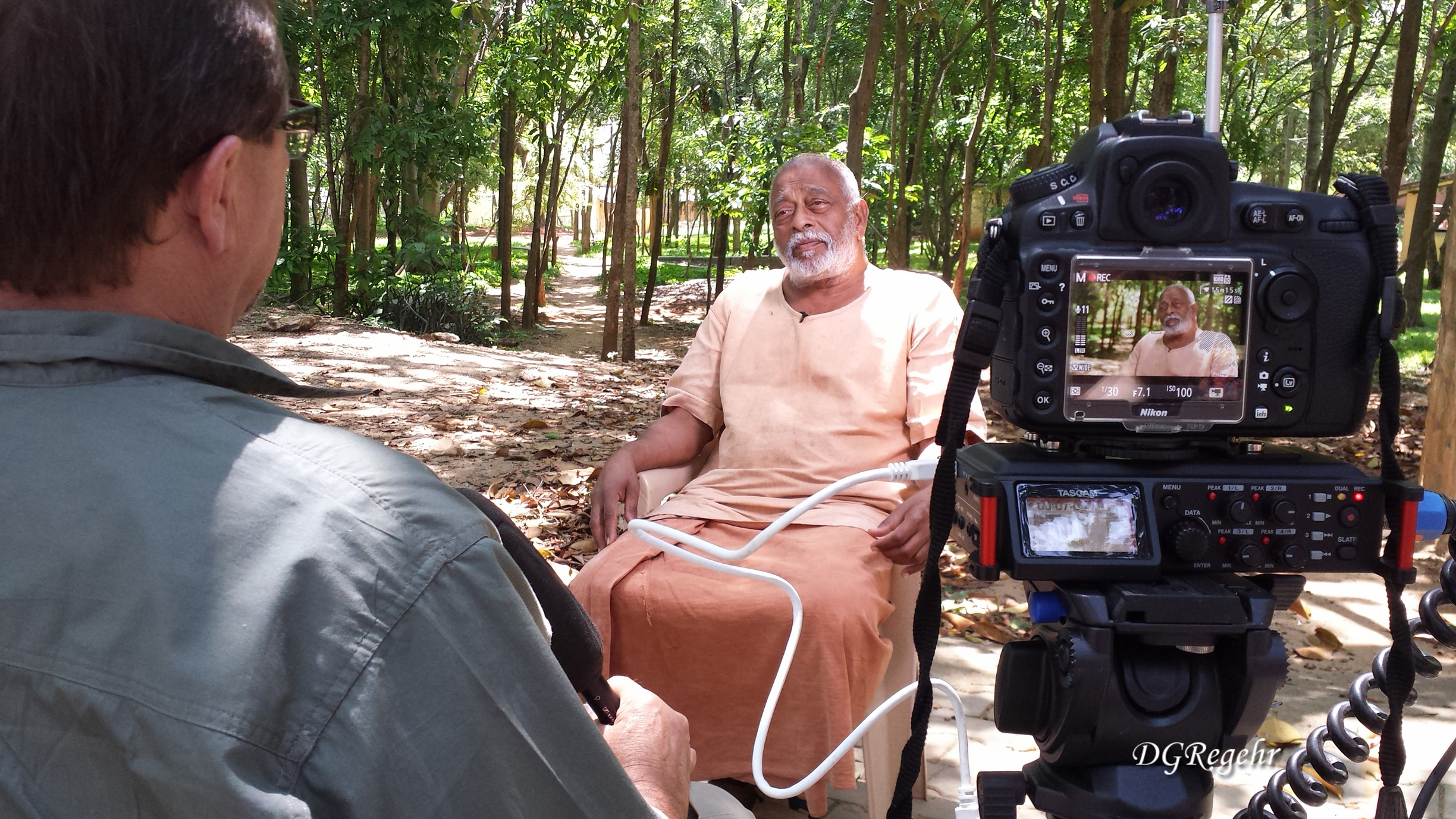
Interviewing a slow-speaking SWAMI JI with the humidity zapping your battery power (image: supplied).
As with any electrical device, heat & humidity will often drain batteries at a faster rate, but the videographer came up with a simple solution to get them out of a few tight spots.
“We were shooting an interview with a SWAMI JI at his compound outside of Bangalore, and it’s gorgeous,” he relates.
“But this SWAMI JI speaks very slowly, and at great length. I was starting to worry about camera batteries, and then I realized the [sound recorders] batteries were almost out too. Fortunately, I was carrying a couple of power bricks to recharge the cell phones, so I duct-taped a brick to my tripod, plugged it into the DR-70D, and I had [enough] power, [to make] it through that interview and the next one.”
Regehr specifically bought the sound recorder for the project in India, but now back home in the USA, he says he uses the device for all of his camera’s audio capture.
Despite not updating the firmware before leaving for India and making a few minor technical mistakes when first using it, the videographer says he was impressed with the sound recorder’s “rock solid” performance in India.
“It’s really quick, and the audio quality is excellent. The DR-70D has filled gaps I didn’t know I had before the India project. Now I turn to it all the time.”
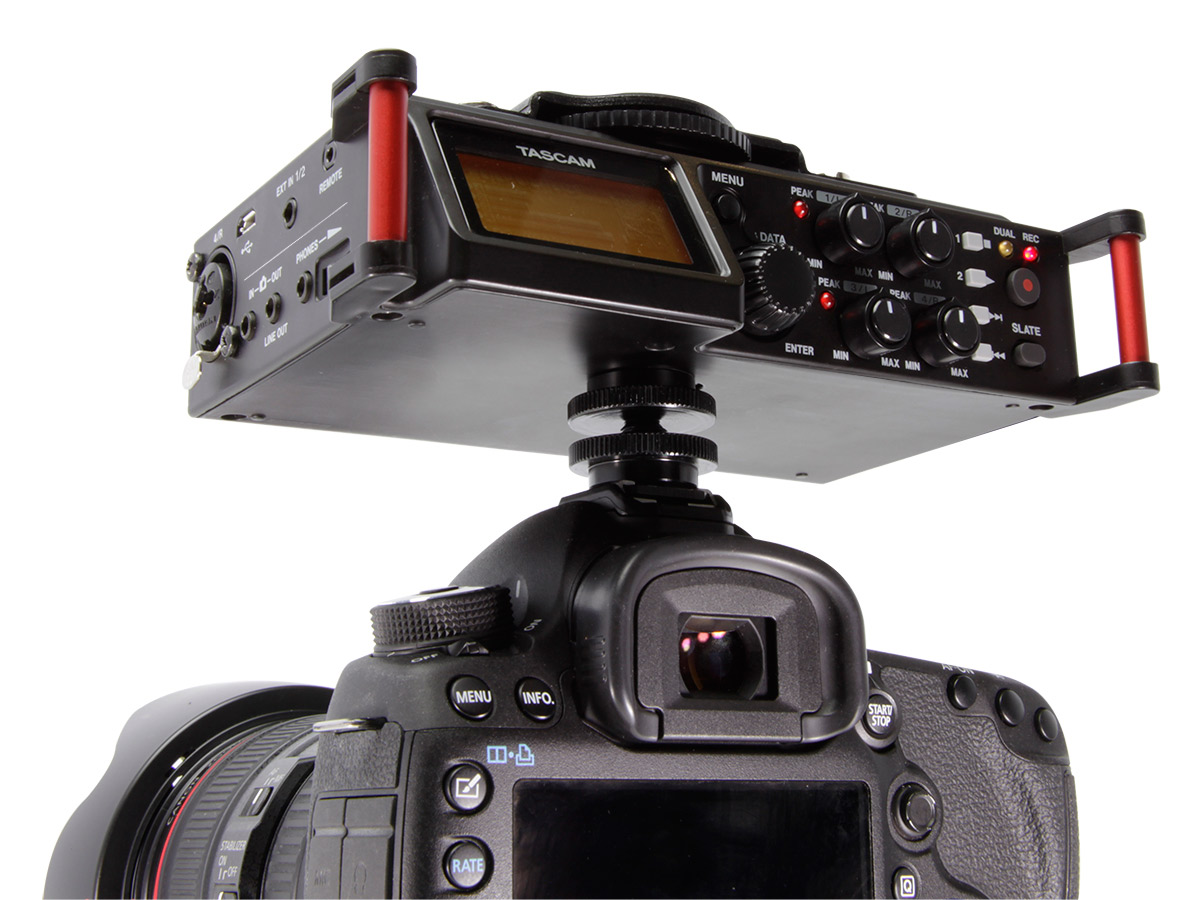
Excerpts from Press Release.

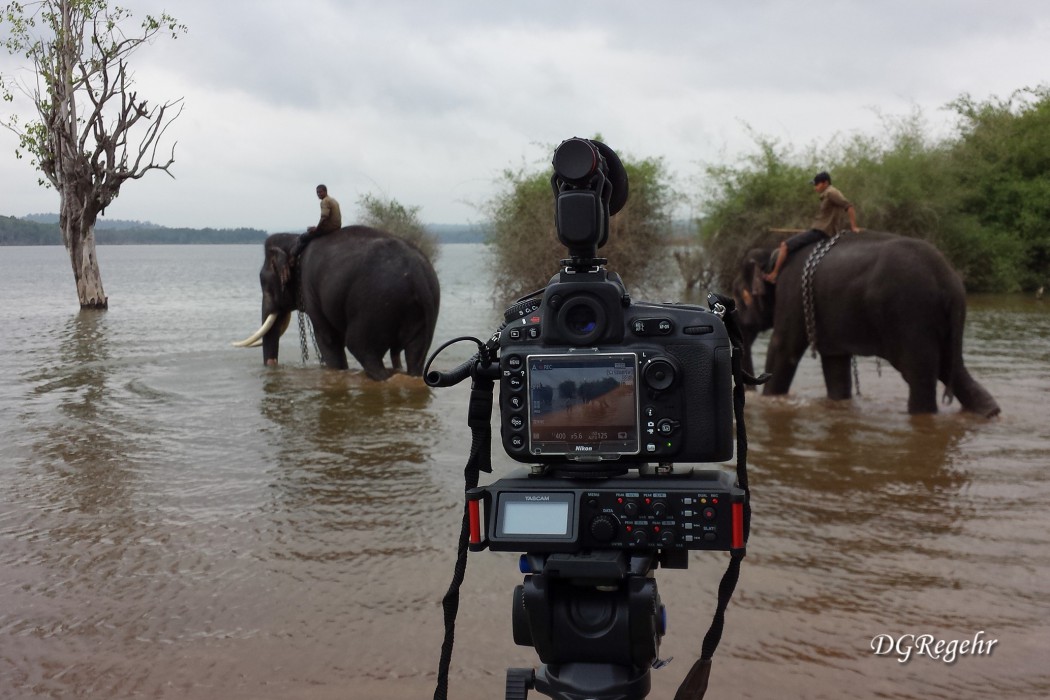



Amar Goud
You cannot call any “Swami ji” just as “Swami” like that… if you don’t understand the language ask someone… Your disrespecting him instead call his as “SWAMI JI” he is a teacher respect him correct your article first Actually English language don’t have respectable words it’s not your mistake… English is a funny language.